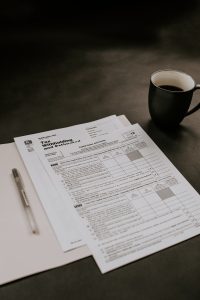The foreign exchange market, commonly known as the forex market, is the largest financial market in the world. It is a decentralized market where currencies are bought and sold by traders, investors, financial institutions, and governments. The forex market operates 24 hours a day, five days a week, and has a daily trading volume of over $5 trillion.
So, who makes up most of the activity in the forex market? Let’s explore the key players in the forex market.
1. Commercial Banks
Commercial banks are the largest participants in the forex market. They facilitate foreign exchange transactions for their clients, including individuals, corporations, and governments. Banks have access to the interbank market, where they can buy and sell currencies at wholesale rates. They also offer forex trading services to their retail clients, providing them with access to the market through their trading platforms.
2. Hedge Funds
Hedge funds are investment funds that use different strategies to generate returns for their investors. Forex trading is a popular strategy among hedge funds as it provides them with the opportunity to make profits in the short term. They use leverage to increase their buying power and take advantage of small price movements in the currency market.
3. Central Banks
Central banks are responsible for the monetary policy of their respective countries. They intervene in the forex market to maintain the stability of their currencies. Central banks may buy or sell currencies to influence their exchange rates. For example, if a central bank wants to weaken its currency, it may sell it in the forex market, increasing its supply and decreasing its value.
4. Retail Traders
Retail traders are individual traders who participate in the forex market through online trading platforms. They can trade currencies in small amounts, and many brokers offer leverage to enhance their buying power. Retail traders are often attracted to the forex market because of its high liquidity, low transaction costs, and the ability to trade 24 hours a day.
5. Institutional Investors
Institutional investors include pension funds, insurance companies, and mutual funds. They invest in the forex market to diversify their portfolios and generate returns for their clients. Institutional investors often have large amounts of capital, and they use different strategies to manage their currency exposure.
6. Corporations
Multinational corporations engage in foreign exchange transactions to manage their currency risks. They may have operations in different countries and need to convert their earnings from different currencies into their home currency. Corporations also engage in currency speculation, where they take positions in currencies to make profits.
In conclusion, the forex market is a diverse market with a wide range of participants. Commercial banks, hedge funds, central banks, retail traders, institutional investors, and corporations make up most of the activity in the market. Each participant has different motivations for trading currencies, and their actions have an impact on the exchange rates of different currencies. Understanding the key players in the forex market is essential for anyone who wants to trade currencies or invest in the foreign exchange market.





